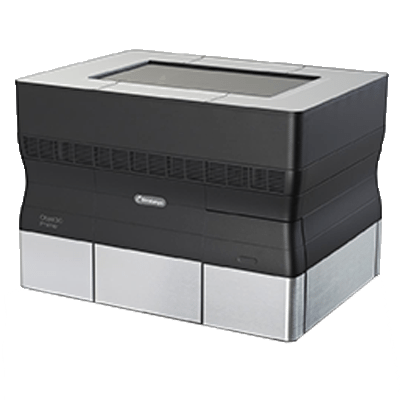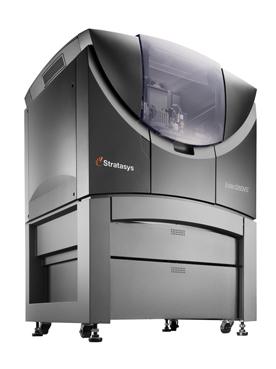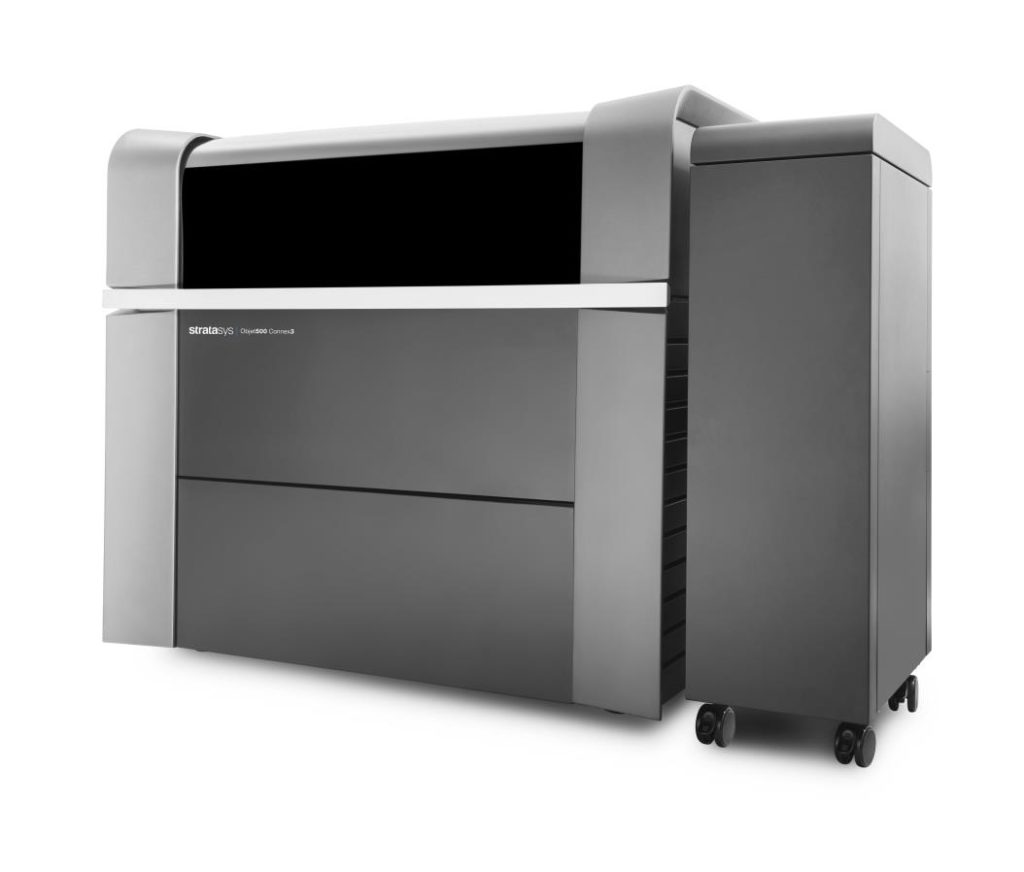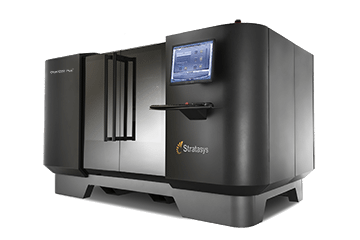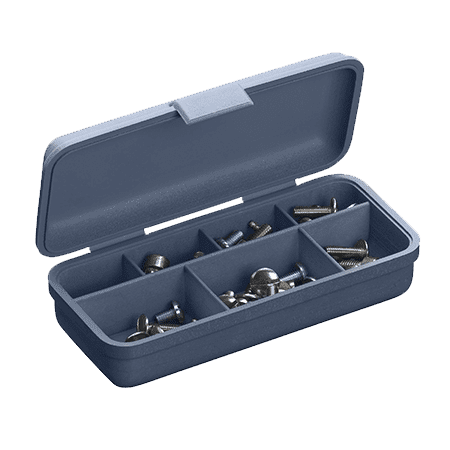
3D Printing For Tough And Flexible Models
Print with Simulated Polypropylene to rapidly produce durable prototypes that look and behave like polypropylene.
Overview
Using two Polyjet printing materials, manufacturers can print prototypes that simulate the appearance and functionality of polypropylene to test form, fit, and function for applications such as snap-fit assemblies, hinges, durable housings, and packaging. Rigur (RGD450) acts as an advanced polypropylene material substitute that offers durability and great surface finishes. Use Rigur in any office-friendly environment to gain reliable performance and stable prototypes. Durus (RGD430) is the original Simulated Polypropylene material that exhibits great impact resilience and an elongation at break of 44%.
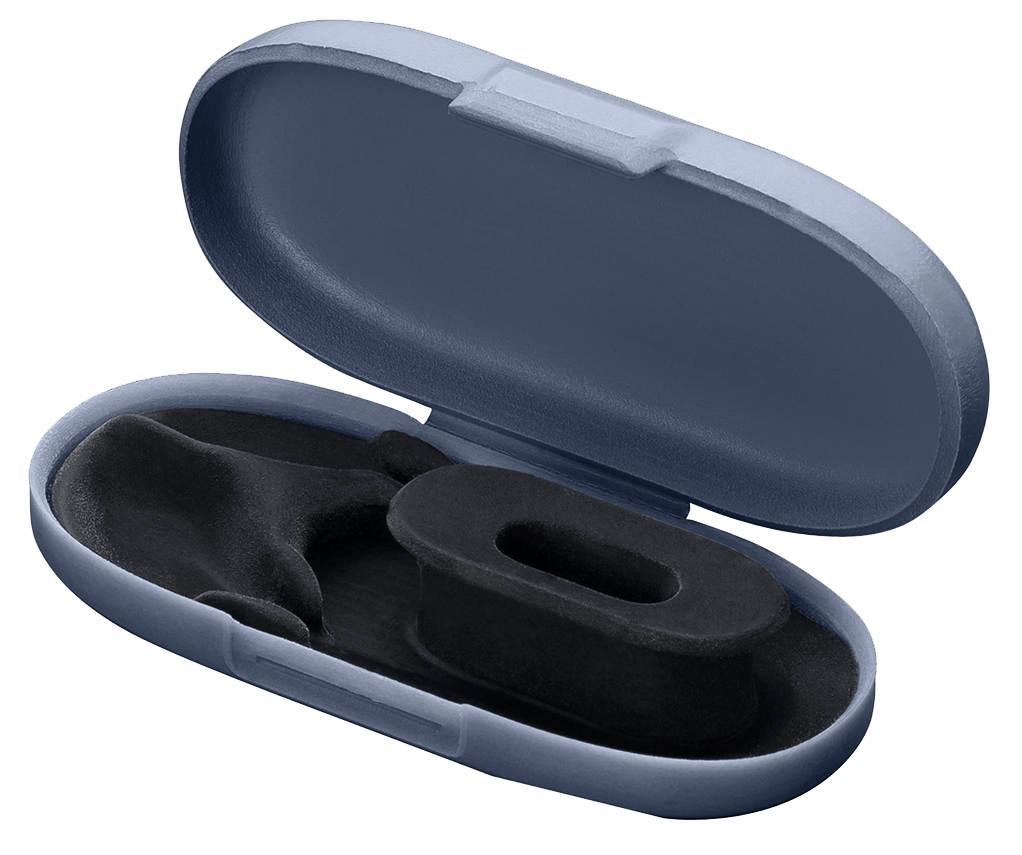
Material Performance
Simulated Polypropylene material is tough, flexible and durable. It enables you to 3D print precision prototypes that look and behave like polypropylene.

IZOD IMPACT,
NOTCHED
30-35 J/m

Heat Deflection
Temperature
49-54°C

Flexural
Strength
52-59 MPa XZ axis

Tensile
Strength
40-45 MPa XZ axis
Material Highlights
Characteristics
- Opaque
- Tough
- Dimensionally stable
Options
- Rigur is an office-friendly material engineered to deliver reliable performance and impressive, dimensionally stable prototypes.
- Rigur comes in a bright, true white with PolyJet technology’s signature fine resolution and smooth curves.
Uses
- Reusable containers and packaging
- Flexible, snap-fit applications and living hinges
- Toys, battery cases, laboratory equipment
- Loudspeakers and automotive components
Advantages
- Versatility
- Fine detail
- Superior toughness
- Bright white color for sleek prototypes
Performance Scale
![]()
![]()
![]()
![]()
Material Colours



Powered By Polyjet
Renowned for its outstanding realism and breathtaking aesthetics, Polyjet 3D printing offers sharp precision, smooth surfaces, and ultra-fine details.
Technical Specifications
Durus White (RGD430)
| Properties | ASTM | Units | Metric | Units | Imperial |
| Tensile Strength | D-638-03 | MPa | 20-30 | psi | 2900-4350 |
| Elongation at Break | D-638-05 | % | 40-50 | % | 40-50 |
| Modulus of Elasticity | D-638-04 | MPa | 1000-2000 | psi | 145,000-175,000 |
| Flexural Strength | D-790-03 | MPa | 30-40 | psi | 4350-5800 |
| Flexural Modulus | D-790-04 | MPa | 1200-1600 | psi | 175,000-230,000 |
| HDT, °C @ 0.45MPa | D-648-06 | °C | 37-42 | °F | 99-108 |
| HDT, °C @ 1.82MPa | D-648-07 | °C | 32-34 | °F | 90-93 |
| IZOD Notched Impact | D-256-06 | J/m | 40-50 | ft lb/inch | 0.749-0.937 |
| Water Absorption | D-570-98 24hr | % | 1.5-1.9 | % | 1.5-1.9 |
| Tg | DMA, E» | °C | 35-37 | °F | 95-99 |
| Shore Hardness (D) | Scale D | Scale D | 74-78 | Scale D | 74-78 |
| Rockwell Hardness | Scale M | Scale M | no data | Scale M | no data |
| Polymerized Density | ASTM D792 | g/cm3 | 1.15-1.17 | ||
| Ash Content | USP281 | % | 0.10-0.12 | % | 0.01-0.12 |
Rigur (RGD450)
| Mechanical Properties | Test Method | Imperial | Metric |
| Tensile Strength | D-638-03 | 5,800-6,500 psi | 40-45 MPa |
| Elongation at Break | D-638-05 | 20-35% | 20-35% |
| Modulus of Elasticity | D-638-04 | 246,000-305,000 psi | 1,700-2,100 MPa |
| Flexural Strength | D-790-03 | 7,500-8,500 psi | 52-59 MPa |
| Flexural Modulus | D-790-04 | 217,000-246,000 psi | 1,500-1,700 MPa |
| IZOD Notched Impact | D-256-06 | 0.561-0.656 ft lb/inch | 30-35 J/m |
| Thermal Properties | Test Method | Imperial | Metric |
| Heat Deflection (HDT) @ 0.45 MPa | D-648-06 | 120-129 °F | 49-54 °C |
| Heat Deflection (HDT) @ 1.82 MPa | D-648-07 | 113-122 °F | 45-50 °C |
| Glass Transition (Tg) | DMA, E | 118-126 °F | 48-52 °C |
| Other | Test Method | Imperial | Metric |
| Shore Hardness | Scale D | 80-84 Scale D | 80-84 Scale D |
| Rockwell Hardness | Scale M | 58-62 Scale M | 58-62 Scale M |
| Polymerized Density | ASTM D792 | — | 1.20-1.21 g/cm3 |
| Ash Content | USP 281 | 0.3-0.4% | 0.3-0.4% |
